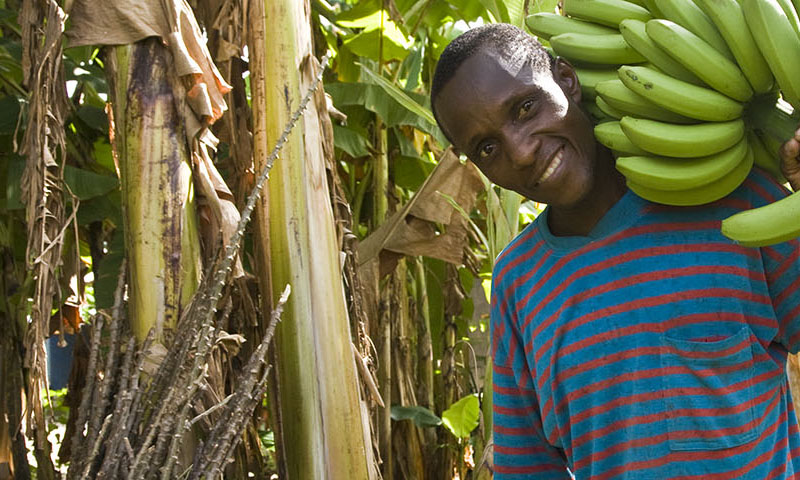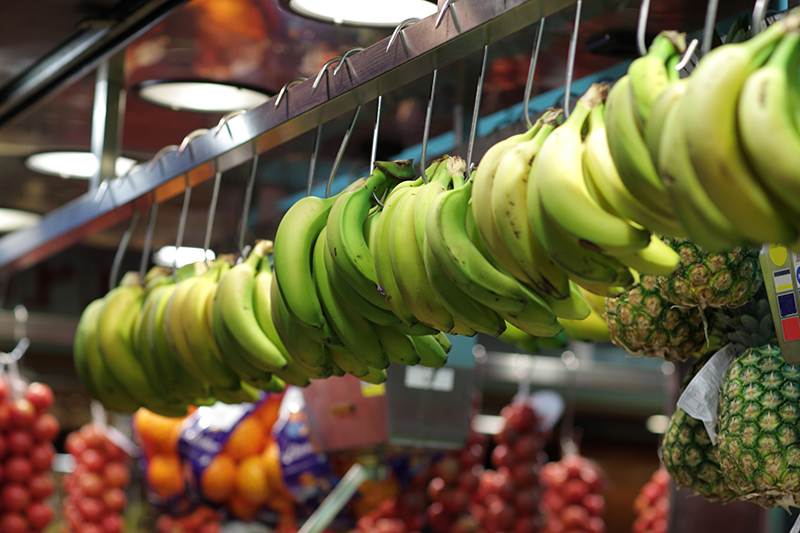This week, nine major UK retailers have made a public commitment to close the living wage gap in their banana supply chains. Aldi, Asda, Co-op, Lidl GB, Marks and Spencer, Morrisons, Sainsbury’s, Tesco, and Waitrose will work together, supported by the Sustainable Trade Initiative (IDH), to collectively ensure that banana plantation workers in their supply chains are paid a living wage by 2027.
The UK retailers commitment follows similar initiatives that have been announced in Germany, Belgium and the Netherlands, with retailers collaborating to ensure banana workers employed on plantations across the Global South will receive an income that is sufficient to live a dignified life. A living wage means that the worker is paid enough to cover the costs of food, water, accommodation, education, health care, clothing and transportation, as well as unforeseen events, for their family in their local area. It is different to the nationally set minimum wage, which does not guarantee a worker is paid above the poverty line.
Like their Belgian and Dutch counterparts, the UK retailers will follow the IDH Roadmap on Living Wages, and will calculate the living wage gaps that exist in their supply chains using the IDH Salary Matrix. The retailers will work in partnership with a range of stakeholders, including suppliers, producers and certifiers but also trade unions and NGOs, to achieve their goal of closing the living wage gap for banana workers.
The news means that Europe’s two biggest banana markets- Germany and the UK – are now covered by a retailer led-commitment to addressing the right to a living wage in their banana supply chains, and represents further evidence of an emerging ‘race to the top’, a key motivator of which has been the development of mandatory human rights due diligence legislation in Germany.

Banana Link’s International Coordinator, Alistair Smith, comments:
Banana Link has been advocating for living wages for over twenty years, when we commissioned our first study into the living wage gap on banana plantations with one of the UK’s leading retailers. At the time workers identified the gaps between what they earned and a wage that would cover their real costs of living. The gaps are still very real in most countries.
We and our trade union partners in the producing countries now look forward to working with the retailers in ensuring that independent workers’ organisations are at the centre of the process of closing gaps. Who better than the trade unions to ensure that this challenging commitment becomes a reality and that supermarkets and their suppliers to play their respective roles?
Banana Link hopes that this important move signals the end of unsustainably cheap bananas in the UK market and that fair prices for all along the chain are at last in view.
